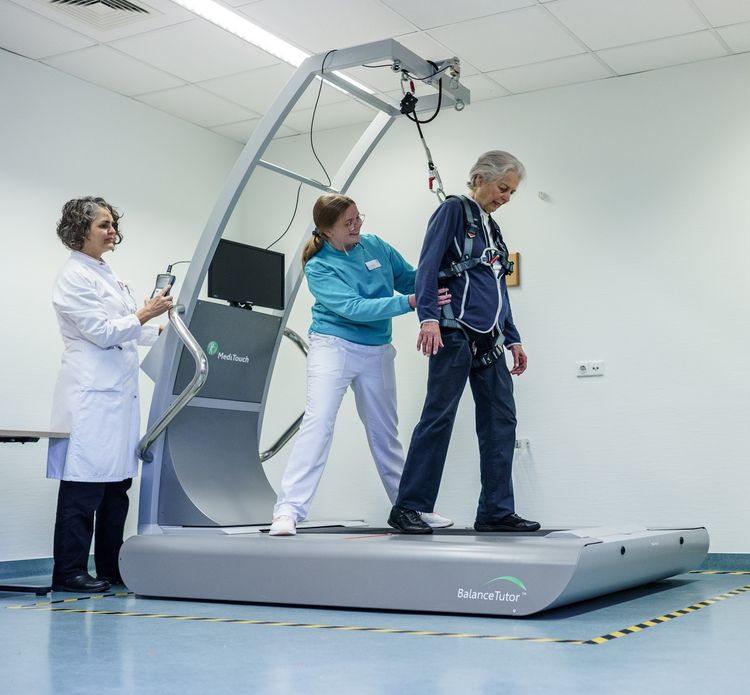TRAIL
TRAIL
Training at the limit of balance control on a disordered treadmill to prevent unintercepted falls in geriatric patients with and without cognitive impairment
Training at the limit of balance control on a perturbation treadmill to prevent unrecovered falls in geriatric patients with and without cognitive impairment
In this study, we investigate the effectiveness of specific balance training using a perturbation treadmill to reduce the risk of falls in older people with and without cognitive impairment.
Every year, over 6 million older people in Germany suffer falls, of which around 25% are considered "unrecovered falls" because they are unable to get up without help. Proven preventive measures, which include physical training, can significantly reduce the rate of falls, but must be carried out over the long term. For some years now, so-called perturbation training has become increasingly important. During this training, the gait is disturbed in a targeted manner and under safe conditions. In treadmill-based perturbation training, the gait is disturbed by deflecting the treadmill to the right and left, as well as accelerating and stopping. Previous research results indicate that just a few training sessions could help to reduce falls. As part of the TRAIL study, we would like to investigate the effectiveness of such treadmill-based perturbation training in preventing unrecovered falls. In particular, we would also like to analyze the effectiveness of the training in people with and without cognitive impairment.
The study participants are recruited at the end of their stay at the Oldenburg Rehabilitation Center. They receive nine training interventions over nine sessions within 3 weeks, after which the participants are called back to the rehabilitation center after 6 months and again after 12 months to take tests.
The study is randomized and controlled. One group receives treadmill-based perturbation training, the other group conventional treadmill training.
In addition to Oldenburg as sponsor, the university hospitals in Heidelberg and Bochum/Herne are involved in recruitment and data analysis. The University of Ulm will be responsible for data management and biometrics and the University of Constance will be responsible for recording compliance with the implementation.
The study project is funded by the Federal Ministry of Education and Research (BMBF) under the funding code 01KG2303.



